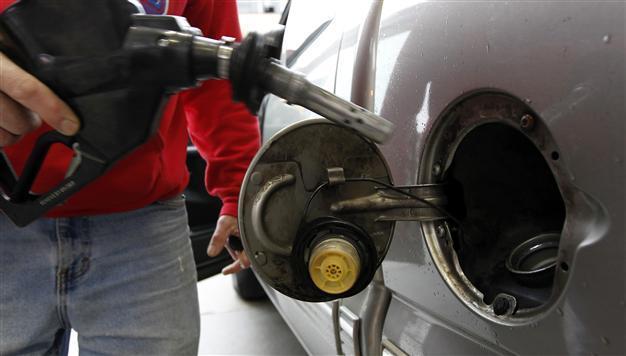Oil highest since 2008 on Saudi pipeline report
NEW YORK - Reuters

AP Photo
Oil surged nearly 5 percent in heavy trading on Thursday, and to its highest since the record run in 2008, as a late report out of Iran of a pipeline fire in top exporter Saudi Arabia triggered a rush of buying.
Iranian media reported an explosion on an unknown oil pipeline in the oil-rich Eastern Province of Saudi Arabia, although it was not possible to verify the report immediately.
A Saudi oil official denied the report, according to a Dow Jones news story that was picked up by CNBC television.
Markets have been on edge this year due to threats of supply disruptions caused by West's standoff with Iran over the latter's nuclear program and to actual production losses from South Sudan, Yemen, Syrian and the North Sea.
"The sharp move up on the pipeline story points to the market nervousness on anything related to supply problems," said Gene McGillian, analyst for Tradition Energy in Stamford, Connecticut.
Brent crude prices topped $128 a barrel in late post-settlement trade, levels not reached since July 2008 when the growing economic crisis sent oil spiraling to record peaks of more than $147 a barrel.
Prices were already up before the pipeline report, lifted by news Israel would test-fire a ballistic interceptor missile, escalating tensions over the crisis that has included tough sanctions against Iran.
International benchmark Brent crude climbed to $128.40 a barrel in post-settlment trade, the highest since July 2008, after settling at $126.20, up $3.54 on the day. As trading wound up for the day, the contract last traded at $126.00, up
$3.34.
U.S. April crude settled at $108.84 a barrel, up $1.77, before rising to $110.55 in late activity, the highest since May 2011. In post-settlement electronic trading, the contract last traded at $108.60, up $1.53.
At the close, Brent's premium against U.S. crude widened to $17.36, from $16.27 on Wednesday. The volatile transatlantic spread traded between $15.56 to $18.12. <CL-LCO1=R>
Total Brent trading volume was 49 percent above its 30-day average, hitting nearly 800,000 contracts, according to Reuters data. U.S. crude volume was up nearly 24 percent above its 30-day average, at more than 822,000 contracts.
"This is another Brent-driven escalation trade," said Richard Ilczysyn, chief market strategist and founder of iitrader.com LLC in Chicago.
Iran, the world's fifth largest oil producer, has been struggling to sell its crude in the face of tightening U.S. sanctions and an European Union embargo that kicks in on July 1. This has threatened to tighten global crude supplies.
However, U.S. Energy Secretary Steven Chu said that global oil producers have enough spare production capacity to make up for a drop in Iranian exports.
